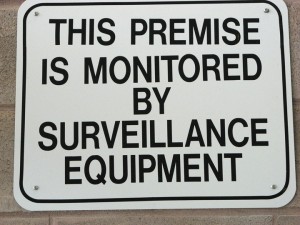
If you’ve listened to a technology presentation in the past two years that included discussion of cloud computing, you’ve probably become embroiled in the ongoing war of the usage of the word premises or the shift of people using the word premise in its stead. This battle has raged for many months now, with the premises side of the argument refusing to give ground and watch a word be totally redefined. So where is this all coming from?
The Premise of Your Premises
The etymology of these two words is actually linked, as you might expect. Premise is the first to appear in the late 14th century. It traces from the Old French premisse which is derived from the Medieval Latin premissa, which are both defined as “a previous proposition from which another follows”.
The appearance of premises comes from the use of premise in legal documents in the 15th century. In those documents, a premise was a “matter previously stated”. More often than not, that referred to some kind of property like a house or a building. Over time, that came to be known as a premises.
Where the breakdown starts happening is recently in technology. We live in a world where brevity is important. The more information we can convey in a brief period the better we can be understood by our peers. Just look at the walking briefing scenes from The West Wing to get an idea of how we must compress and rapidly deliver ideas today. In an effort to save precious syllables during a presentation, I’m sure some CTO or Senior Engineer compressed premises into premise. And as we often do in technology, this presentation style and wording was copied ad infinitum by imitators and competitors alike.
Now, we stand on the verge of premise being redefined. This has a precedent in recent linguistics. The word literally was recently been changed from the standard definition of “in a literal sense” or describing something as it actually happened into an informal usage of “emphasizing strong feeling while not being literally true”. This change has grammar nerds and linguistics people at odds. Some argue that language evolves over time to include new meanings. Others claim that changing a word to be defined as the exact opposite meaning is a perversion and is wrong.
The Site of Your Ideas
Perhaps the real solution to this problem is to get rid of the $2 words when a $.50 word will do just fine. Instead of talking about on-premises cloud deployments, how about referring to them as on-site? Instead of talking about the premise behind creating a hybrid cloud, why not refer to the idea behind it (especially when you consider that the strict definition of premise doesn’t really mean idea).
By excising these words from your vocabulary now, you lose the risk of using them improperly. You even get to save a syllable here and there. If word economy is truly the goal, the aim should be to use the most precise word with the least amount of effort. If you are parroting a presentation from Amazon or Google and keep referring to on-premise computing you are doing a disservice to people that are listening to you and will carry your message forward to new groups of listeners.
Tom’s Take
If you’re going to insist on using premises and premise, please make sure you get them right. It takes less than a second to add the missing “s” to the end of that idea and make it a real place. Otherwise you’re going to come off sounding like you don’t know what you’re talking about. Kind of like this (definitely not safe for work):
Instead, let’s move past using these terms and get back to something more simple and straightforward. Sites can never be confused for ideas. It may be more direct and less flashy to say on-site but you never have to worry about using the wrong term or getting the grammarians on your bad side. And that’s a premise worth believing in.


Pingback: Can I Question You An Ask? | The Networking Nerd
Pingback: I Hate Excellent Questions | The Networking Nerd